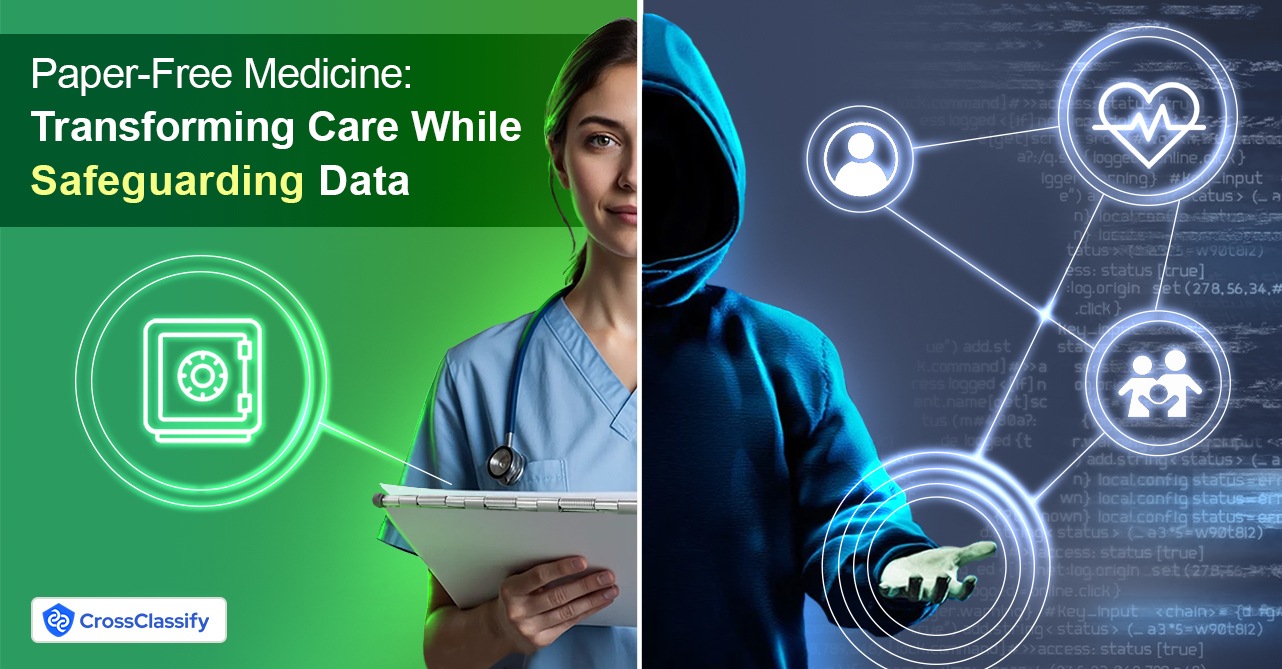
27 Jan 2025
Paper-Free Medicine: Transforming Care While Safeguarding Data
We live in a time where the physical world is diving headfirst into the digital realm. From digital prescriptions to online doctor appointments and even virtual therapy, technology is revolutionizing healthcare. The convenience is undeniable—but it comes with significant cybersecurity risks.
The Fast-Forward Button:
The pandemic accelerated this transformation, pushing healthcare to go paperless almost overnight. While this rapid shift improved access and efficiency, it also raised a critical question:
Did we lay the cybersecurity foundation necessary to protect sensitive patient data?
The Reality Check:
Over 93% of healthcare organizations have experienced a data breach in the last three years. (Source: Ponemon Institute (https://www.ponemon.org/))
The healthcare industry accounted for 20% of all reported data breaches in 2022, making it one of the most targeted sectors.
The move to digital means data is more exposed to threats like:
Account Takeovers (ATO): Cybercriminals can exploit stolen credentials to access patient portals and sensitive health records.
Session Hijacking: Unprotected sessions leave the door open for unauthorized access and manipulation.
What Does This Mean for Healthcare?
Paper-free medicine isn’t just about convenience—it’s a call to action for more advanced cybersecurity measures.
Encryption, multi-factor authentication (MFA), and real-time monitoring must become standard in safeguarding patient data.
As we embrace paperless healthcare, we must ask ourselves:
Are we ready to protect the data entrusted to us?
The digital transformation in healthcare is a leap forward, but it demands an equal leap in cybersecurity. Let's build a safer digital healthcare system together.
What measures do you think are essential to secure paperless healthcare? Share your thoughts!
